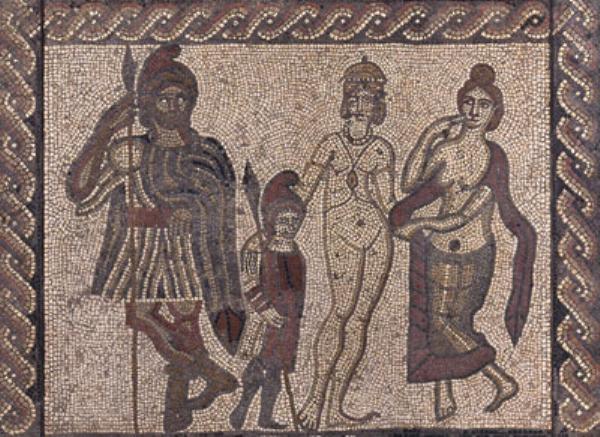guess we've all experienced. Has a broken relationship. No matter why or what part instances. It was decided, by mutual agreement (or not), keep the distance and let time pass. Establishing, in short, the rhetoric of silence . It outlaws the phone calls, emails, phone messages to, nor will most instant messaging contacts. All communication channels have been closed and frozen by decree.
However, perhaps one of the partners (or both) still feels in his heart the embers of the old flame ( Veteris vestigia flammae ). And wait, but do not want or like, but do not assume it is the most appropriate, a communication initiative by the other. Pick up the phone a hundred times a day to make sure that the line remains intact, compulsively check the inbox of the email, check your phone every five minutes to check for new sms alert, monitoring the main Messenger screen with more eye watchful as the monster that guarded Io Argo. But nothing. No communication. It then undergoes rhetoric more eloquent and devastating that exists: the rhetoric of silence.
I would argue are two literary examples of this rhetoric implied, one ancient and one modern. The former example is documented in the history of Aeneas and Dido, as told by Virgil in the Aeneid (especially in Book IV). The Trojan prince Aeneas, after having had an affair in Carthage with Queen Dido (of Phoenician origin) for imposition of fate and the gods must abandon the love Queen, and set sail in search of a destination, Italy, where found the germ of the future state of Rome. Dido fits badly neglect, and suicide. Time after (and en el libro VI de la Eneida ), Eneas desciende a los Infiernos, donde se encuentra con el espíritu de Dido. Le dirige a ella una larga alocución, intentando disculparse. Y ella, por toda respuesta, le contesta muy elocuentemente con la Retórica del silencio. He aquí el emotivo pasaje ( Eneida 4.450-476):

inter quas Phoenissa recens a vulnere Dido
errabat silva in magna; quam Troius heros
ut primum iuxta stetit agnovitque per umbras
obscuram, qualem primo qui surgere mense
aut videt aut vidisse putat per nubila lunam,
demisit lacrimas dulcique adfatus amore est:
«infelix Dido, verus mihi nuntius ergo
venerat exstinctam ferroque extrema secutam?
funeris heu tibi causa fui? per sidera iuro,
per superos et si qua fides tellure sub ima est,
invitus, regina, tuo de litore cessi.
sed me iussa deum, quae nunc has ire per umbras,
per loca senta situ cogunt noctemque profundam,
imperiis egere suis; nec credere quivi
hunc tantum tibi me discessu ferre dolorem.
siste gradum teque aspectu ne subtrahe nostro.
quem fugis? extremum fato quod te adloquor hoc est.»
talibus Aeneas ardentem et torva tuentem
lenibat dictis animum lacrimasque ciebat.
illa solo fixos oculos aversa tenebat
nec magis incepto vultum sermone movetur
quam si dura silex aut stet Marpesia cautes.
tandem corripuit sese atque inimica refugit
in nemus umbriferum, coniunx ubi pristinus illi
respondet curis aequatque Sychaeus amorem.
nec minus Aeneas casu percussus iniquo
prosequitur lacrimis longe et miseratur euntem.
nec minus Aeneas casu percussus iniquo
prosequitur lacrimis longe et miseratur euntem.
Entre ellas, la fenicia Dido, abatida por herida reciente,
erraba en el inmenso bosque; tan pronto el héroe troyano
se plantó junto a ella y la reconoció, oscura, entre las sombras,
como la luna que, al principio del mes,
alguien percibe o cree haber percibido que aparece entre nubes,
estalló en llanto y le habló con dulce love
"Unhappy Dido!," so the news was true
that I had arrived, you had reached your dessert destination,
off to iron? Oh, I was the cause of your death? swear by the stars,
by the gods and how much loyalty there is in the bowels of the earth,
that against my will, Queen, I left your coast.
But to me the orders of the gods, now I am forced to move in the shadows, through places
rot bristling at night deep
pushed me with their opinions, and I could not imagine starting
with my size I would grant you pain.
Stop your step and do not steal my eyes.
do Who are you running? Because of fate, this is the last word that I address. "With these words
Aeneas tried to comfort a spirit
burned and looked grimly, while shedding tears.
She kept her eyes fixed on the ground, without looking,
and her face is moved more by the statement issued, which is fixed
the flinty rock or Marpesia.
Finally, he picked it up and ran
hostile expression of a wet forest, where her former husband,
Sychaeus, serving their sentences and it is up in love.
Aeneas, not less moved by the unfair random
accompanies it from afar with her tears and pity as she leaves.
Note that Virgil devotes 16 verses to present the scene. Of these, the speech of Aeneas takes 11 verses. Dido's response, none. Aeneas cries three times in the beginning, middle and end of the scene.
of modern poetry, the text has moved me most, reflecting the rhetoric of silence, is a famous poem by French poet Jacques Prévert (1900-1977), entitled "Déjeuner du matin" (" Breakfast ") and owned compilation book Paroles (1945). It is titled so because it just describes a breakfast, but could graduate with a phrase that is repeated several veces en el poema, "Without me talking" ("Sin hablarme"), porque el texto refleja muy plásticamente the retórica that sufrir el silencio del Sujeto:

Lunch Morning
It has In the coffee cup
He put the milk in the
cup of coffee He put the sugar in the
latte
With spoon
He turned
He drank the coffee And he
rested the cup Without speaking to me
He lit A cigarette He made
round
With the smoke He put the ashes In the ashtray
Without me about
Without looking at me
He rose
He put his hat on his head
He put his raincoat
Because it was raining And he left
the rain
Without a word Without looking at me
And I took My head
in my hand And I cried. He aquí
una traducción (MIA) al castellano, meramente utilitaria:
Desayuno
Ella echo
coffee in the Echo
taza leche
In the coffee
Echo taza azúcar
En el café con leche Con la
cucharilla
stirred He drank the coffee cup
and left without speaking
lit A cigarette He scrolls
With smoke
threw the ashes in the ashtray
No talk
Without looking
The hat was placed on
head
It was raining Cause Its waterproof
And he left the rain
Without a word Without looking
And I covered my head with her hands and cried
.
There are several similarities between the two texts. The two men covered their beloved opera, and they keep silence. The two beloved of glaze, and beyond at the end. And the two men weep. In the rhetoric of silence.
Technorati tags: Vergil, Aeneid , Aeneas, Dido , Jacques Prévert , Rhetorics , silence, love , Classical Tradition
0 comments:
Post a Comment